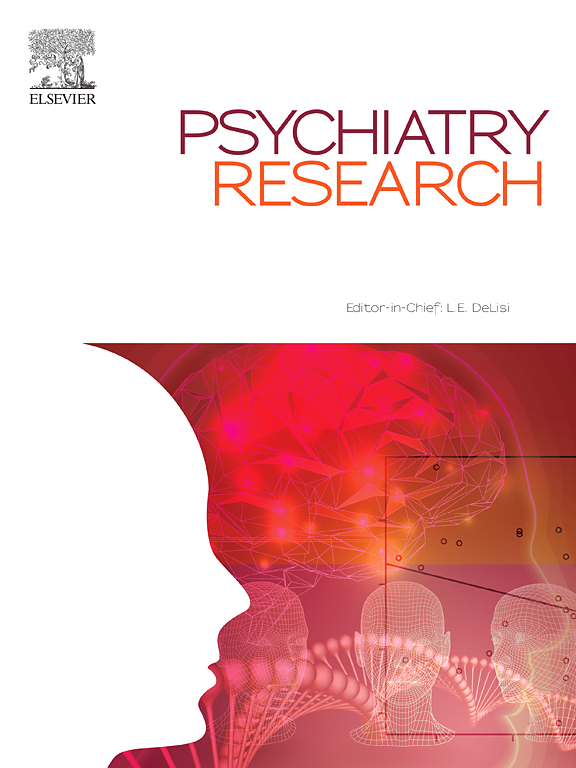Impact of COVID-19 pandemic-related restrictive measures on overall mental and physical health and well-being, specific psychopathologies and emotional states in representative adult Greek population: Results from the largest multi-wave, online national survey in Greece (COH-FIT)
IF 4.2
2区 医学
Q1 PSYCHIATRY
引用次数: 0
Abstract
Background
Greece faced particular COVID-19-pandemic-related challenges, due to specific socio-cultural-economic/public-health factors and drastic restrictive policies.
Objectives
To understand trajectories of overall mental and physical health, well-being, emotional states and individual psychopathology in response to pandemic-related restrictive measures within general adult Greek population across the first two pandemic waves.
Methods
Using multiple time-point cross-sectional data from the “Collaborative Outcomes study on Health and Functioning during Infection Times” (COH-FIT), we examined changes in outcomes from retrospective pre-pandemic ratings (T0) to three distinct intra-pandemic time points (lockdown 1: T1, between lockdowns: T2, lockdown 2: T3). Primary outcomes included WHO-5 well-being scores and a composite overall psychopathology “P-score”, followed by a wide range of secondary outcomes.
Results
10,377 participant responses were evaluated, including 2737 representative-matched participants. Statistically significant differences in well-being and overall psychopathology before and after quarantine (T0 vs. T1-T3), as well as across the assessed time frames (T1, T2, and T3) emerged in both samples. Global mental and physical health, individual psychopathology scores (anxiety, depression, PTSD, OCD, panic, mania, mood swings, sleep and concentration problems), emotional states (anger, helplessness, fear of infection, boredom, frustration, loneliness and overall stress scores), BMI and pain scores also showed statistically significant time differences in both samples, with the exemption of self-injury and suicidal attempt scores, showing lower intra-pandemic scores.
Conclusions
This is the largest multi-wave report on well-being, mental and physical health across different pandemic restriction periods in Greece, suggesting a substantial negative effect of lockdowns on most outcomes at least during the acute pandemic waves.
求助全文
约1分钟内获得全文
求助全文
来源期刊

Psychiatry Research
医学-精神病学
CiteScore
17.40
自引率
1.80%
发文量
527
审稿时长
57 days
期刊介绍:
Psychiatry Research offers swift publication of comprehensive research reports and reviews within the field of psychiatry.
The scope of the journal encompasses:
Biochemical, physiological, neuroanatomic, genetic, neurocognitive, and psychosocial determinants of psychiatric disorders.
Diagnostic assessments of psychiatric disorders.
Evaluations that pursue hypotheses about the cause or causes of psychiatric diseases.
Evaluations of pharmacologic and non-pharmacologic psychiatric treatments.
Basic neuroscience studies related to animal or neurochemical models for psychiatric disorders.
Methodological advances, such as instrumentation, clinical scales, and assays directly applicable to psychiatric research.
 求助内容:
求助内容: 应助结果提醒方式:
应助结果提醒方式:


